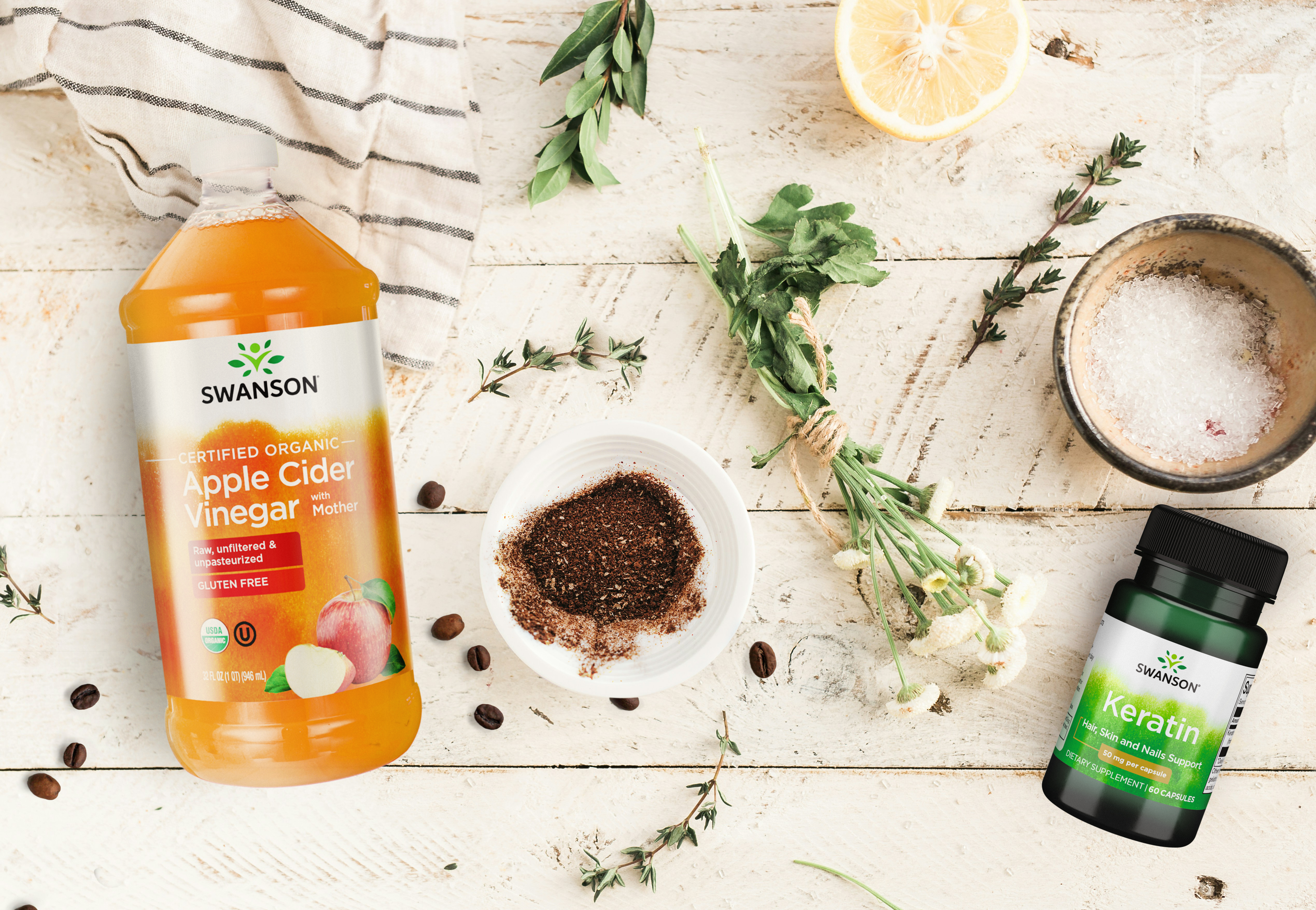Boost Your Health and Wellness with Bone Broth
Bone broth is trending in the health and wellness world, with products showing up in our social media feeds, health food stores and in hip restaurants across the country. We’re drinking it out of mugs, adding bone broth collagen powder to smoothies and telling our friends how amazing it is—but do you know why?
If you haven’t tried bone broth yet, you’re probably wondering what all the buzz is about. After all, isn’t bone broth just soup? Well, not quite. Bone broth is an ancient superfood with real benefits for modern health. Read on to learn where this trend came from, what’s in bone broth that’s so good for you, the benefits of bone broth and the best ways to get those benefits.
How Did the Bone Broth Trend Start?
Bone broth has been enjoyed since the beginning of documented history, and maybe even earlier. In some cultures, broth made with marrow bones has remained a dinnertime staple to sip alongside a meal or as part of a vitality-enhancing breakfast.1
Bone broth’s rise to fame in recent years started with the paleo dieting trend, which follows a way of eating that mimics the types of foods humans would have eaten during the Paleolithic era (approximately 2.5 million to 10,000 years ago).2 Bone broth is a staple of the paleo diet. It’s also keto-diet friendly, and the popularity of these diets has helped bone broth gain traction. The fact that sipping bone broth is delicious and comforting certainly doesn’t hurt either. But the health-conscious among us recognized that there’s a lot more to bone broth than flavor, so its popularity soared.
And bone broth isn’t the same as just any stock you’d buy at the grocery store. It’s made with roasted animal bones and simmered for a very long time—usually between 12 and 48 hours—to give the bones plenty of time to break down and release the nutrients inside.
What’s in Bone Broth?
Bone broth contains various nutrients that are released from bones during the lengthy cooking process, including vitamins, minerals and amino acids. The type of bones used for the broth and the preparation will affect the nutritional value of the resulting bone broth, so you’ll need to read your nutritional labels, but bone broths generally contain varied amounts of calcium, magnesium, potassium, phosphorus, and trace minerals.3 Bones also contain collagen, the most plentiful type of protein in the body, and along with it a wide range of amino acids. The collagen in bone broth is a big factor in its popularity.
Marrow contains additional vitamins and minerals, including vitamin A, vitamin K-2, boron, iron, zinc and essential fatty acids, and the connective tissue contains glucosamine and chondroitin, all of which may be imparted to the broth, depending on the bones used.3 Bones from various sources may contain specific nutrients unique to its source. Here’s a quick list of the most common types of broth:
- Beef Bone Broth—Contains protein and minerals, including calcium, magnesium, phosphorus and sulfur, and may also contain CLA (Conjugated Linoleic Acid), a type of fatty acid.3
- Chicken Bone Broth—Contains protein, vitamins and minerals. Chicken broth made with chicken feet contains more gelatin than chicken broth made without chicken feet.4
- Fish Bone Broth—Like other broths, fish broth typically contains protein, vitamins and minerals, but it can also contain iodine. 3
If you make bone broth from scratch, it’s difficult to know exactly which nutrients and how much of them are in your broth because it will can vary from batch to batch, even among the same type of bones.3 You’ll still know you’re doing something good for your body; you just won’t be able to do the math.
What Are the Benefits of Bone Broth?
All those vitamins, minerals and amino acids are the sources of bone broth benefits, and the variety of nutrients impart an equally wide variety of benefits, from skin and joint health to strong bones and beyond. Here’s a list of popular bone broth benefits:
Bone Broth for Skin: The collagen in bone broth may promote skin health. An 8-week study on the effects of collagen supplementation on skin revealed better skin hydration and improved density of collagen in skin.5
Bone Broth for Hair & Nails: Collagen is protein, and protein is a building block of hair and nails. Getting enough protein in the diet supports hair and nail growth.6,7 And supplementing with collagen may boost nail growth by as much as 12% plus reduce breakage.7
Bone Broth for Joints: Glucosamine and chondroitin found in bone broth are popular nutrients used for supporting joint health. Studies show glucosamine and chondroitin may support joint comfort and help minimize age-related cartilage breakdown.8,9 Learn more about these joint health nutrients in 7 Joint Care Supplements and How They Work.
Bone Broth for Strong Bones: Collagen plays a role in bone health, and broth that contains magnesium, potassium and calcium may help support bones since those minerals contribute to bone health.10,11 However, don’t rely on bone broth alone for your bone-supporting minerals because the amounts of these nutrients in bone broth are typically low.
Bone Broth for Digestion: Amino acids and gelatin in bone broth may help balance the gut, aid digestion and support a healthy gastrointestinal tract.12,13
How to Get Bone Broth Benefits
When it comes to getting bone broth benefits, you have choices. You can make your own bone broth, you can buy bone broth premade or you can get it in a bone broth collagen supplement.
Bone Broth Collagen Supplements
The most convenient way to get the benefits of bone broth is with a bone broth collagen supplement, but not just any bone broth supplement will do. Choose a supplement from a trusted source that is made with USDA certified bovine bones and has been quality-tested to guarantee purity and potency, like Swanson’s Real Food Bone Broth Collagen. With a tested and transparently-labeled bone broth supplement, you’ll know exactly what you’re getting.
Our bone broth collagen supplement delivers a replenishing dose of 10 grams of collagen, 15 grams of protein and 19 amino acids in every serving to give you the benefits you crave: promoting skin elasticity, joint health, strong bones and more. That’s more collagen and protein than other brands and at a lower cost per serving. Plus, it’s available in three delicious varieties: unflavored, vanilla and chocolate to give you endless options for use and mixability.
The unflavored version of Real Food Bone Broth Collagen doesn't have added flavoring, but retains a mild, natural flavor that's easily hidden when blended into both sweet and savory recipes. We recommend mixing in a shaker bottle or blender to avoid clumping.
Making Your Own Bone Broth
As we mentioned above, you can make your own bone broth if you’re up to the task. You won’t know exactly how much of the nutrients generally found in bone broth you're getting, but if that doesn’t deter you and you can safely roast and simmer a big pot of bones for up to 48 hours, you should be able to get marrow bones from a local butcher and make your own. Safety is definitely a big issue to consider because you’ll need to monitor your efforts for an extended period of time.
If you do make your own bone broth, you can also add fresh or ground organic herbs to boost the flavor and benefits. Try organic garlic, ground turmeric, rosemary or thyme. You can learn about the nutrients in some common kitchen herbs and the best herbs to grow indoors in Top Five Herbs to Grow Indoors, and check out What is Turmeric? to learn about this amazing antioxidant superfood.
Buying Premade Bone Broth
Restaurants, health food stores and even some grocery stores are increasingly stocking their shelves with premade bone broth. If you go this route, keep a close eye on the ingredients. Some are high in sodium and contain preservatives that you may not want in your diet. Also, look for bone broth made with high-quality bones that are USDA certified, and compare nutritional labels to look for options with higher protein, collagen and nutrient amounts.
Nourish Your Body with Bone Broth
Skin-loving, joint-supporting bone broth is a healthful treat for your body and a delicious comfort food that delivers a wide range of nutrients, including collagen, amino acids, vitamins and minerals that provide wellness benefits. We love health trends that focus on nourishing the body with real food ingredients.
About Lindsey Toth, MS, RD
Lindsey is a nationally-recognized registered dietitian and nutritionist with a soft spot for ice cream. She empowers people to take charge of their health by finding the balance between the pleasure and nourishment in food. Her philosophy is that you should take care of your body because it’s the only permanent home you have. It’s what inspired her to pursue a career in nutrition.
*These statements have not been evaluated by the Food and Drug Administration. These products are not intended to diagnose, treat, cure, or prevent any disease.
Sources
1. Bones, Broth, and Bliss. The New York Times. Read source
2. Paleo Diet: What is it and why is it so popular? Mayo Clinic. Read source
3. Bone Broth: How to Make It and Why You Should. Healthline. Read source
4. How to Make Bone Broth. Wellness Mama. Read source
5. The effect of oral collagen peptide supplementation on skin moisture. PubMed. Read source
6. The 14 Best Foods for Hair Growth. Healthline. Read source
7. Collagen supplements may boost nail growth and appearance. NutraIngredients USA. Read source
8. Glucosamine Sulfate. MedlinePlus. Read source
9. Glucosamine. Mayo Clinic. Read source
10. Specific Collagen Peptides Improve Bone Mineral Density and Bone Markers in Postmenopausal Women. National Library of Medicine. Read source
11. Minerals for Bone Health. American Bone Health. Read source
12. Stimulation of gastric acid secreted by glycine and related oligopeptides in humans. PubMed. Read source
13. Gelatin tannate reduces the proinflammatory effects of lipopolysaccharide in human intestinal epithelial cells. National Library of Medicine. Read source




